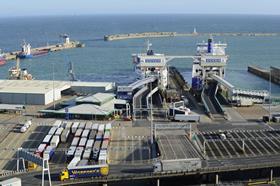
Dover has hit back at government plans to divert shipments bound for the port if no deal is reached on Brexit.
The UK government recently suggested sending food exports to the Netherlands and Belgium via ports in Essex and Suffolk, rather than shipping via Dover to France if the French government imposes new security checks that delay traffic to Calais in the event of a ‘no deal’.
The proposed routes include Harwich to Rotterdam and Felixstowe to Vlaardingen, in the south of the Netherlands.
The aim is to ensure that exports of perishable goods and strategic products, such as military and communications equipment, are not hindered. However, the
port’s head of policy and communications Richard Christian said Dover should continue to be used as normal since it is “the closest and most efficient crossing to Europe.”
He toldPort Strategy: “There is no substitutable capacity elsewhere that can handle the type and volume of goods that the Port of Dover does.
“Dover is the closest and most efficient crossing to Europe, handling up to 180km of freight daily. Diverting a bit of Dover’s traffic elsewhere would still leave the majority of important UK and EU ‘just-in-time’ goods held up if Dover becomes subject to delays.
“Government and industry focus should remain on maintaining the fluidity of this vital cross-Channel link and the livelihoods that depend on it, rather than diverting attention to less efficient routes for traffic that relies on the speed and frequency of service only possible from Dover.”



